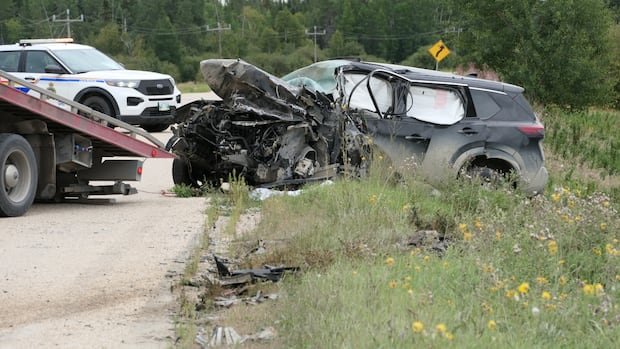A man accused of killing his sister and injuring several others in a knife attack at Hollow Water First Nation in Manitoba had been instructed to stay away from his sibling while he was on bail, as per court documents. Tyrone Simard, 26, faced charges of assault with a weapon and mischief stemming from incidents on June 8. Additional charges of sexual assault, sexual interference, and invitation to sexual touching from 2017 were also part of the legal proceedings.
Following his release on bail on June 12, Simard was subject to various conditions, including a curfew and directives not to consume drugs or alcohol or possess weapons. He was specifically prohibited from contacting four individuals, including his 18-year-old sister Marina Simard, who tragically lost her life during the recent assaults.
Court records revealed that Simard had previously pleaded guilty to assault and mischief offenses in 2017. Reports indicated that he struggled with cognitive issues and alcohol abuse, as documented in court transcripts accessed by CBC News.
Having spent his early years in Hollow Water before entering foster care at age 10, Simard transitioned between group homes in Winnipeg until settling in a foster home until adulthood. The Royal Canadian Mounted Police (RCMP) reported that Simard allegedly stabbed eight people on the First Nation northeast of Winnipeg, with seven victims hospitalized.
After fleeing in a stolen vehicle, Simard was involved in a fatal collision with an RCMP cruiser. The responding officer, en route to the attack scene, sustained injuries but is expected to recover. The Independent Investigation Unit of Manitoba is investigating Simard’s death.
Communities, including the James Smith Cree Nation, have extended messages of sympathy and solidarity to Hollow Water following the tragic incident. Manitoba Premier Wab Kinew visited Hollow Water on the night of the attack.
In response to the events, Assembly of First Nations National Chief Cindy Woodhouse Nepinak emphasized the pressing need for measures to enhance safety and security for Indigenous communities, calling for compassionate and community-centered approaches to address their unique requirements.


